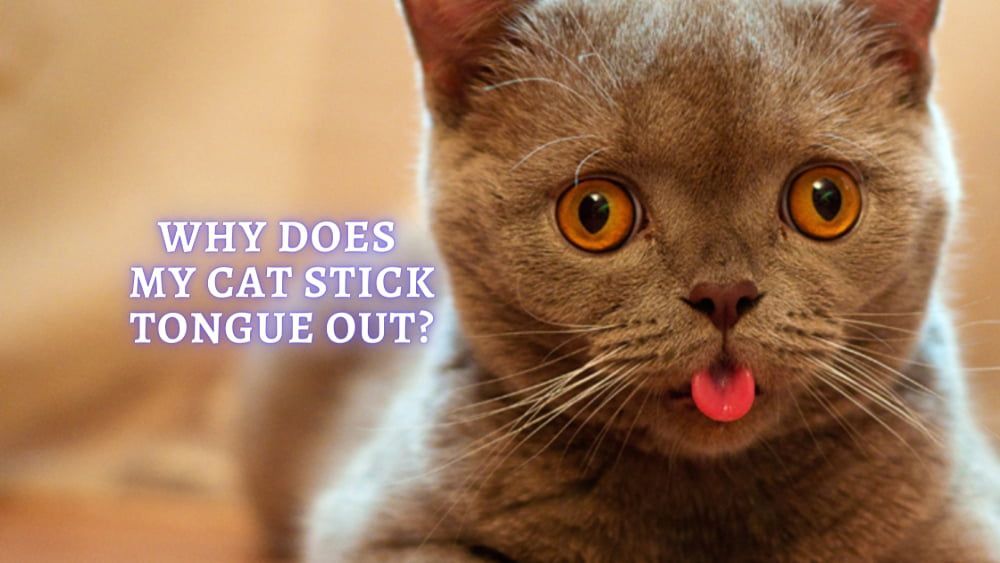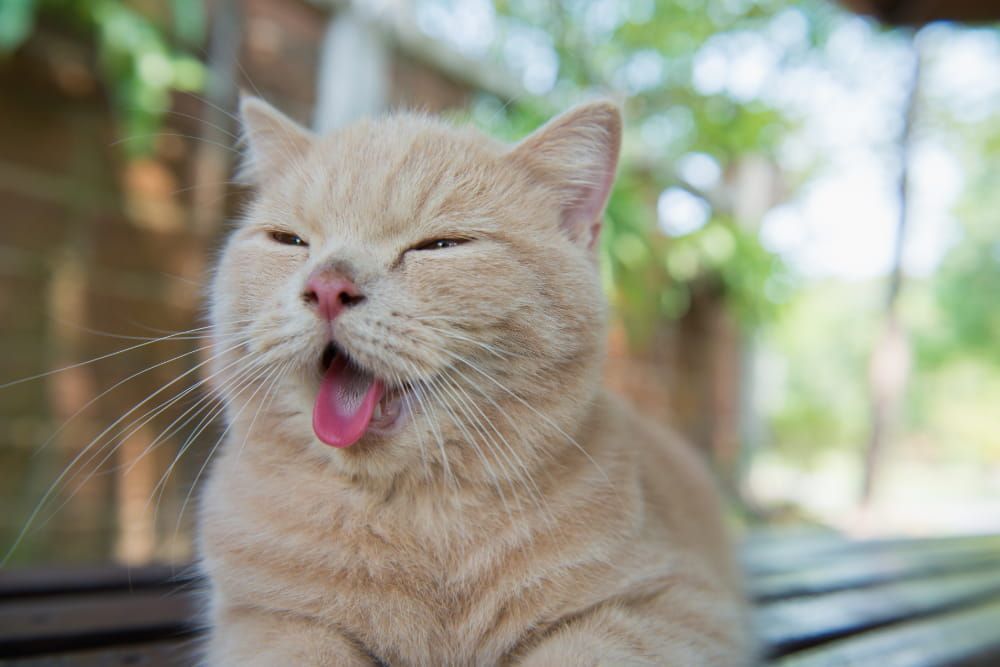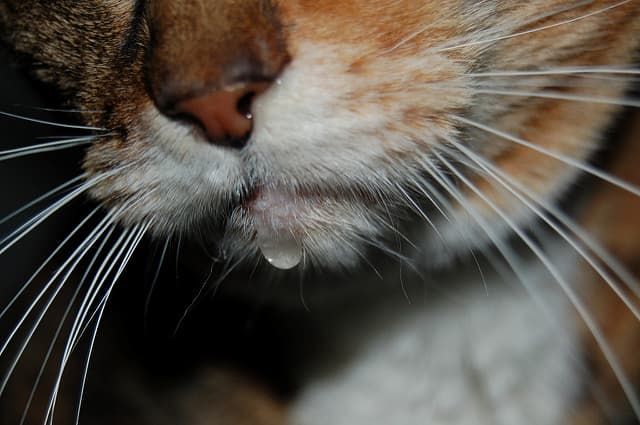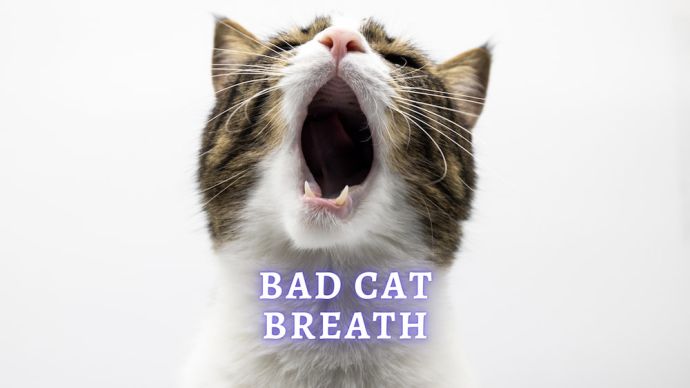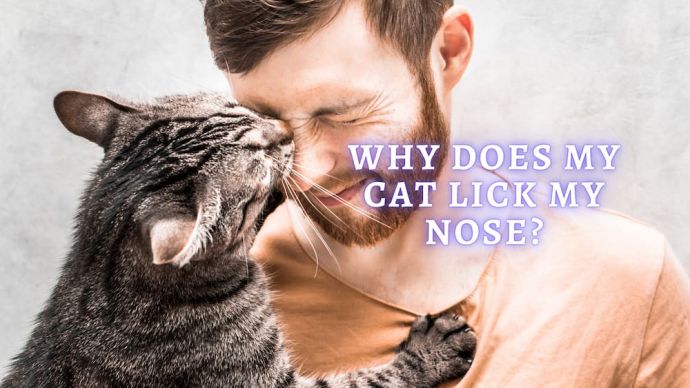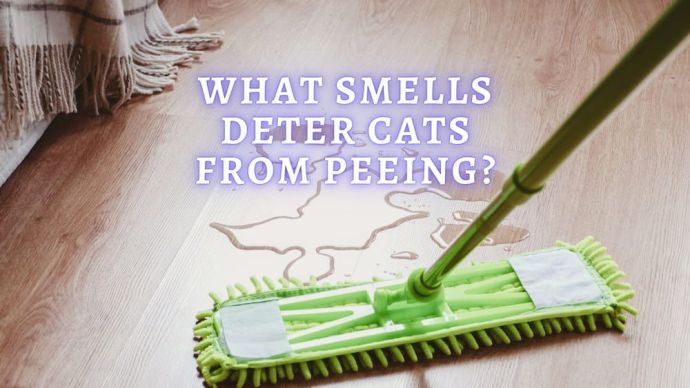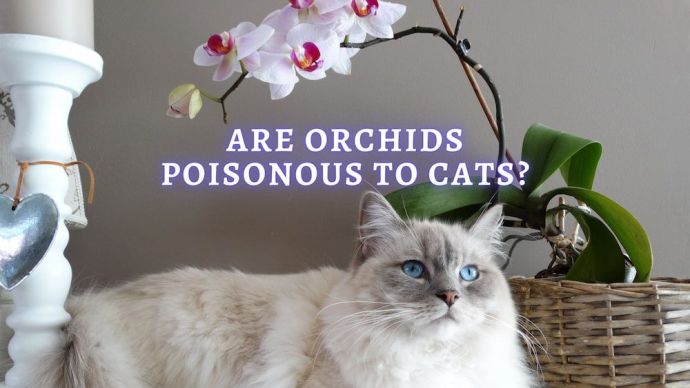Cat’s Tongue Sticking out: Why does my Cat’s Tongue Stick out?
Written by:
Author: Vicki Smirnova
Vicki Smirnova is a professional writer and editor who adores animals and helps readers get along well with their pets. She has been working in digital media for more than 5 years and has great experience writing content about lifestyle, including pets. Vicki specializes in dog health and nutrition, cat feeding, dog training. She is an aquarium lover and is passionate to write about fish care at home. Also, Vicki headed several websites and worked as a news editor.
View all 244 articlesLearn about our editorial process and veterinary review board.
Reviewed by:
Veterinary review
by Dr. Sara Ochoa
Dr. Sara Redding Ochoa is a veterinarian with many years of experience and higher education. During her time in veterinary school she was able to learn form some of the most well-known veterinarians from all over the world. Sara lives happily with her husband Greg and her babies Ruby the schnoodle, and Bam-Bam her bunny. Dr. Sara Redding Ochoa has a passion and love for animals that makes her a wonderful asset to our team.
View all 13 articlesLearn about our veterinary review board
Viewed: 1876
Updated on: 01/03/2023
The tongue is a strong muscle in the cat’s body. The animal’s tongue performs much more functions than the same organ in humans. It is involved in recognizing the temperature of food and its taste and helps deliver food to the oral cavity. Besides, it is engaged in daily hygiene procedures and can signal problems.
A veterinarian can determine the condition of a cat by its tongue. It is a health indicator. If it changes color or there are wounds in the mouth, something is wrong with the pet’s health. In the normal state, the tongue is entirely in the mouth. But sometimes, you can see a cat with its tongue hanging out. In some breeds, this is observed much more often than in others. So why do cats like to stick out their tongue, and in what cases should you worry?
How a Cat uses its Tongue?
The cat’s tongue is a muscular organ, wholly covered with bulges and peculiar bumps in a unique shape. The taste buds are made up of keratin, which gives a rough, bristly appearance.
Such a unique structure is necessary for survival. Cats use their tongue to comb and remove dirt from fur, which is a fundamental aspect of eliminating any odors that may endanger hunting or turn the cats into prey for other animals.
A cat is naturally predatory, so these tough tongue fragments help catch its prey, tear up the food, and carefully chop it into small pieces while chewing.
Cat’s Tongue functions:
- Drinking water. The cat can drink only with the help of the tongue: it bends the tongue back, lowers it into the water, and then raises it up, sucking water at an incredible speed. This movement is swift. The cat can perform 4 sips per second.
- Taste buds. Cats have fewer taste buds than humans. They are not able to feel the sweetness.
- Regulation of body temperature. When cats are hot, they restore their body temperature by licking themselves. This process moisturizes the coat. Saliva evaporates, thus dissipating heat from the body and improving sweating.
- Chewing. The tongue plays an essential role in the chewing process. Also, it cats separate the meat from the bones.
- Combing. It is a brush for cats. The cat uses it to clean its fur, remove dead and excess fur and any traces of food. Unfortunately, during this grooming process, the pet may swallow some of its own hair remaining on the tongue. Because of this, woolly lumps can form in the cat’s esophagus, which can cause vomiting.
- Communication with offspring. The mother cat usually licks her kittens, thereby showing affection, as well as keeping them clean.
Cat Sticks out its Tongue: Natural Causes
The cat may stick out its tongue for the following reasons:
1. Forgetfulness
The pet sometimes forgets that the tongue needs to be removed from the mouth. A similar situation is observed in most young children and even in some adults who sit in thought with their mouths open. It is most often observed after the end of washing.
2. Bite problems
Not all cats have the correct bite, and the lower jaw can be pushed forward in some breeds. As a result, the teeth do not interfere with the tongue, and it sticks out. It is necessary to treat such a problematic bite only if it causes discomfort in the pet.
2. Thermoregulation
The tongue also allows the cat to regulate its body temperature. Sticking out the tongue allows you to slightly reduce the discomfort in the heat. If the cat is very overheated, it can have a heat stroke. It is worth moving the animal to a cool place and offering water.
3. Emotions
Each pet is different. The cat can stick out its tongue, shows strong emotions. It can be excitement or a display of sympathy. Before giving birth, the animal begins to get very nervous, constantly licks itself, can sit for a long time with its tongue hanging out, forgetting to pull it back in.
4. Sleep position
When the cat goes to bed, its muscular system almost wholly relaxes. The tongue can fall out of the mouth, especially when the animal has taken a body position in which the lower jaw hangs down.
In most cases, it is easy enough to touch the tongue’s tip to make the cat remove it. However, there are other cases.[2]
READ MORE: Can Cat Taste Spicy?
Dangerous Causes of a Cat’s protruding Tongue
In some situations, a tongue sticking out of the mouth can indicate serious problems. There are diseases in which the cat’s tongue protrudes, and you must consult a veterinarian if the anomaly is caused by a disease. There are the following diseases:
- Heart failure. With such a serious ailment, pulmonary edema often develops when the cat breathes with its stomach while sticking out its tongue. Signs of heart failure in cats include loss of appetite, cyanosis of the tongue and gums, distinct wheezing during exhalation, rapid heartbeat, and possible coordination problems caused by partial paralysis of the hind limbs. Heart failure is not the only disease in which cats often stick out their tongue. The same picture can be observed, for example, with ischemia, angina, hypertension.
- Kidney failure. It happens that a cat shows its tongue and breathes heavily with poor kidney function. Signs of such a disease are unpleasant ammonia breath, severe thirst and frequent urination, vomiting, diarrhea, yellowing of the mucous membranes, poor coat and skin condition, weight loss, poor vision, severe swelling in the abdomen.
- Worms. Infection with worms in some cases leads to the fact that the cat has problems with breathing.
- Inflammation of the oral cavity. Sometimes the cat breathes with its tongue out, with stomatitis, periodontal disease, or gingivitis. This is explained simply: when the tongue is behind the teeth, it touches painful sores with stomatitis or inflamed gums with gingivitis. To slightly reduce the discomfort, the cat releases the tongue from the mouth. Symptoms of stomatitis in cats are bad breath, problems with chewing food, intense salivation, ulcers on the mucous membranes of the mouth, in some situations, fever. With gingivitis, the symptoms are similar, except that there are no ulcers characteristic of stomatitis.
- Overheating and heat stroke. Evaluate the weather conditions. Cats don’t sweat like humans do. They cool the body through the pads of the paws, and licking-evaporation reduces the risk of overheating. If the cat is very hot, it opens its mouth and sticks out its tongue.
- Respiratory infection. Respiratory diseases of infectious and non-infectious nature. Sometimes a pet sticks out its tongue and breathes like a dog, with rhinitis, ARVI, tracheitis, pneumonia, bronchitis. The main signs of these ailments and the tongue protruding from the mouth are breathing problems, coughing, wheezing during inhalation and exhalation, snuffling, refusal to eat, nasal discharge, in some cases fever, apathy. Almost such symptoms, plus a disorder of the stool, apathy, the discharge of pus from the eyes and nose (painful crusts can form on the nose), occur with infectious diseases – rhinotracheitis, chlamydia. [1]
- Masses of the oral cavity. Cancer of the tongue, gums, palate, or jaw is one of the most dangerous reasons cats stick out their tongue. The symptoms of such a terrible disease are plaque on the tongue, bleeding and a disgusting smell from the mouth, a hoarse voice, difficulty chewing and swallowing food, painful ulcers on the tongue, gums, lips, and palate. By the way, a protruding tongue is a sign not only of malignant formations, but also of polyps, which can be located on the tongue and under, on the palate, cheeks.
- A foreign object in the respiratory system. Sticking out the tongue is a common thing with such a problem. Other symptoms of a foreign object in the respiratory tract – sneezing, coughing (sometimes with blood), the flow of mucus from the nose and tears from the eyes, difficulty breathing (the animal breathes quickly, noisily, heavily), and chewing food.
- Laryngeal edema is caused by allergies. Sometimes an adult animal or kitten sticks out its tongue when allergic to food or medicines if there is a respiratory system swelling. Symptoms of such a problem are an increase in the size of the palate and tonsils, problems with breathing (the cat rarely, deeply and slowly breathes, coughs), a decrease in the pulse, difficulty swallowing food, hoarseness of the voice, anxiety.
- Damages to the jaw. There is no appetite, drooling, and tongue sticking out of the mouth in cats with a dislocated jaw. With a bilateral dislocation, the animal can not close its mouth at all, with a unilateral one-the mouth is slightly open, and the jaw is pushed to the side;
- Dysfunction of stem structures of the brain. If the brain is disturbed, namely those parts of it that are responsible for breathing and several other important functions, cats may have such a problem of constantly sticking out their tongue against the background of difficulties in inhaling and exhaling;
- Poisoning. When the body is intoxicated, cats often sit with their tongue out. The animals have difficulty breathing, severe salivation, vomiting and diarrhea, trembling, convulsions, problems with coordination, dilated pupils, apathy or increased anxiety.
If the animal’s tongue is constantly sticking out, and even there are any exciting symptoms (for example, wheezing when breathing or refusing to eat), you should immediately go with the cat to the veterinary clinic. In some situations, proper diagnosis and timely medical care can save the life of an animal. In particular, you should be vigilant if we are talking about a baby kitten or an elderly pet, as they carry any diseases harder than healthy cats in the prime of life.
My Cat is Drooling & Licking Frequently
In addition to the protruding tongue, the pet owner can notice abundant salivation. The salivation can serve as a signal of the presence of severe pathology. To exclude this possibility, visit a veterinarian, and a specialist will accurately determine the cause and eliminate the risk of developing the disease.
If the owner notices that the cat is too often and diligently licked and the chin and neck are wet, this is a wrong signal. It is worth paying close attention to the behavior: if the pet is wiped on the furniture where the cat sleeps, wet spots or puddles are found, it is necessary to take immediate action.
If salivation is too plentiful, it can only indicate health problems with the pet.
The cause of the manifestation of this process can be various disorders. For example, it can be based on infection with different viral diseases (rabies), accompanied by an increased body temperature and, abundant water consumption by the pet, vomiting.
Another cause may be food poisoning or chemical poisoning. In this case, it is essential to determine precisely what this reaction was received, accompanied by vomiting, a change in the consistency of the stool.
Also, the cause of increased salivation can be diseases of the oral cavity, teeth, and gums. These disorders will be accompanied, among other things, by obvious pain when the animal receives food.
The cause of excessive salivation may also be foreign objects in the mouth, throat, or esophagus (food residues, parts of toys, wool). Chronic diseases, disorders of the digestive tract, cancer, and even helminths can cause increased salivation.
READ MORE: Best CBD Oils for Cats with Cancer
You should not jump to conclusions on your own. In itself, excessive salivation is not a disease, but in combination with other symptoms, indicates the presence of a certain disease, which can only be stated by a veterinarian after conducting and deciphering special tests. The owner remains to seek timely help from a specialist and, taking into account the instructions of the veterinarian, begin treatment of the pet.[3]
READ MORE: Vaccines for Cats: Core Cat Vaccines
FAQ
Why is my cat’s tongue sticking out?
Some cats have a habit of occasionally showing their tongue. They can do this for various reasons. Since this behavior is most unusual for them. It may indicate some physiological features or the presence of serious diseases.
Why do cats stick their tongue out while sleeping?
During sleep, the cat’s muscles relax, the mouth may open slightly, and the tongue may fall out. In this case, the tongue is stuck out-this is normal.
What’s with the tongue sticking out?
Usually, when a cat sticks out the tip of the tongue, most often this is not the norm. This phenomenon happens in the discomfort that the animal experiences or diseases (congenital or acquired).
Why is my cat panting with tongue out?
The reason for frequent breathing and protruding tongue can be stress, high fever, fright. These situations will not harm the cat. However, the cause may also be a cat’s disease. If this behavior is observed very often, it is recommended to consult a veterinarian.
Article Sources:
- “What Are The Signs Of Cat Flu.” Greencross Vets, greencrossvets.com.au/pet-library/articles-of-interest/feline-respiratory-disease/.
- Waring, Laura. “Do Cats Need Cat Flu Vaccines?” Vet Help Direct, 17 Jan. 2021, vethelpdirect.com/vetblog/2021/01/17/do-cats-need-cat-flu-vaccines/.
- “Your Pet’s Medications.” American Veterinary Medical Association, avma.org/resources/pet-owners/petcare/your-pets-medications.
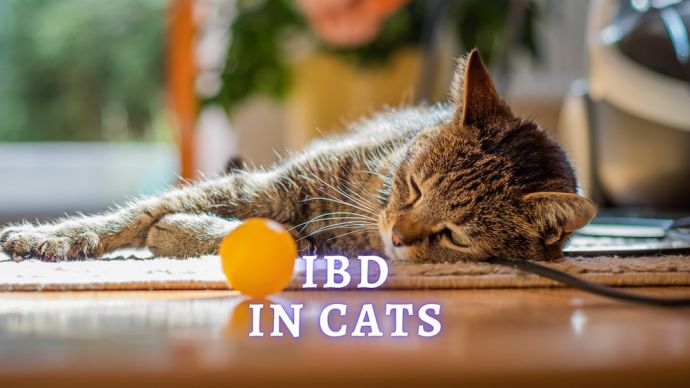 Cat Care IBD in Cats: Symptoms, Diagnose, Treatment and Prognosis (Vet-Approved Advice)
Cat Care IBD in Cats: Symptoms, Diagnose, Treatment and Prognosis (Vet-Approved Advice) - 312
- 0
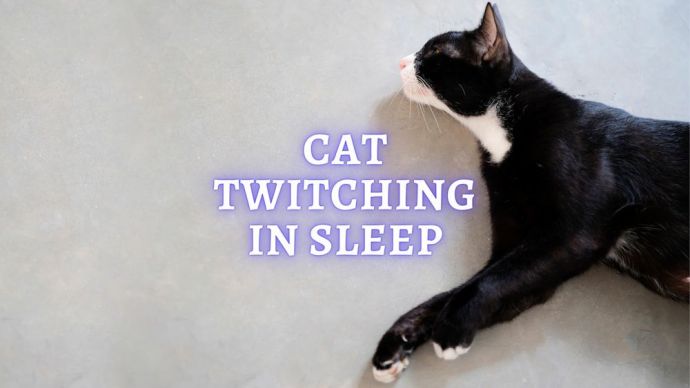 Cat Care Cat Twitching in Sleep: How to Know Cat Twitching in Sleep or Having Seizure
Cat Care Cat Twitching in Sleep: How to Know Cat Twitching in Sleep or Having Seizure - 384
- 0
 Cat Care How to Get an Aggressive Cat Into a Carrier? 6 Methods to Get a Cat Into a Carrier
Cat Care How to Get an Aggressive Cat Into a Carrier? 6 Methods to Get a Cat Into a Carrier - 1602
- 0
 Cat Care Why Does My Cat Attack My Legs? 10 Reasons Why and What To Do About It (Vet-Approved Advice)
Cat Care Why Does My Cat Attack My Legs? 10 Reasons Why and What To Do About It (Vet-Approved Advice) - 46013
- 21
 Cat Veterinary Tips Cat Stomach Gurgling: Vet Advice on Why is Your Cat Stomach Gurgling?
Cat Veterinary Tips Cat Stomach Gurgling: Vet Advice on Why is Your Cat Stomach Gurgling? - 36469
- 4
 Cat Veterinary Tips My Cat Lost its Voice: Can Cats get Laryngitis? (Vet Advice)
Cat Veterinary Tips My Cat Lost its Voice: Can Cats get Laryngitis? (Vet Advice) - 23554
- 13









